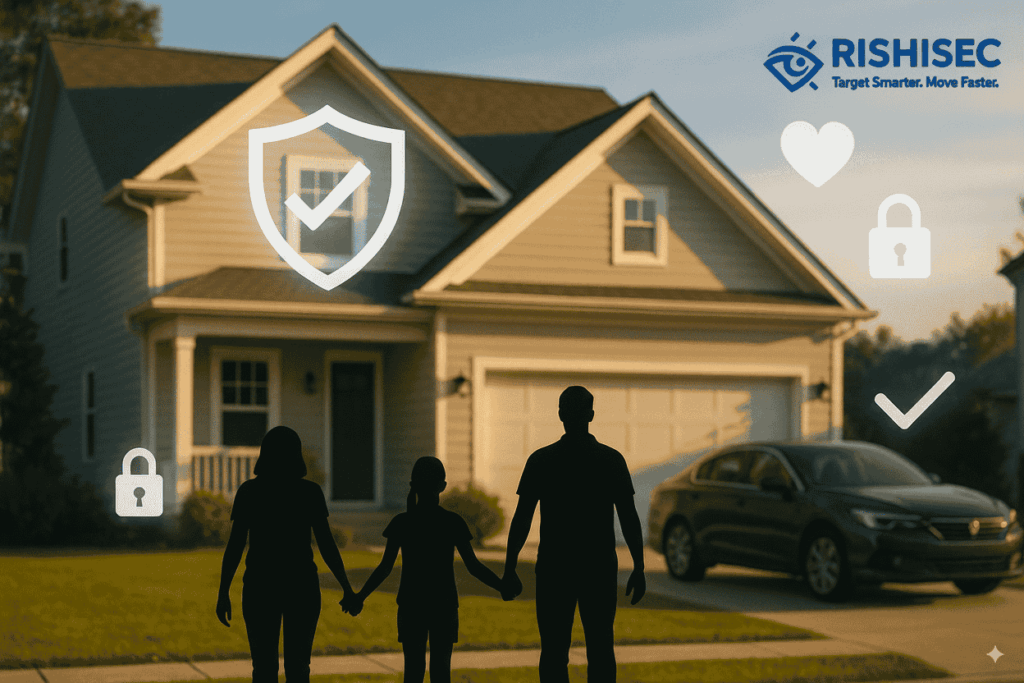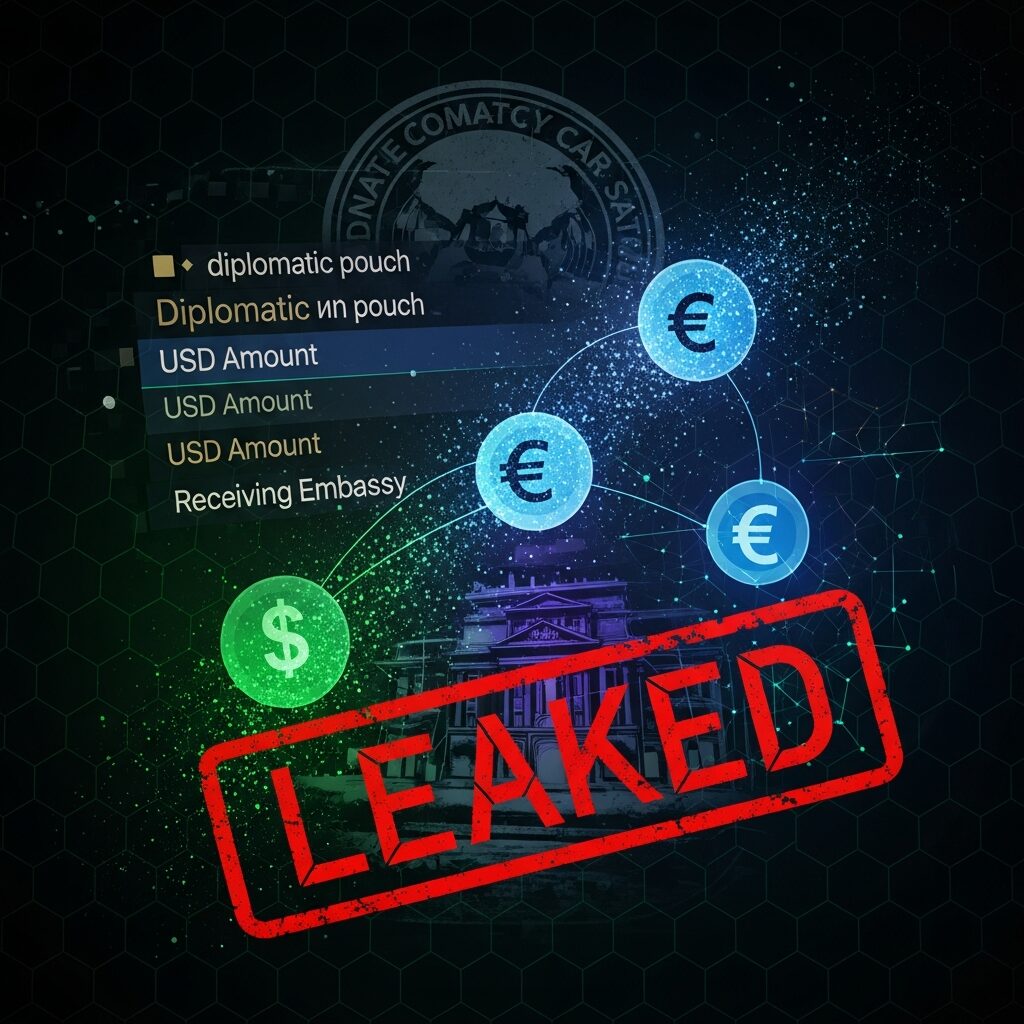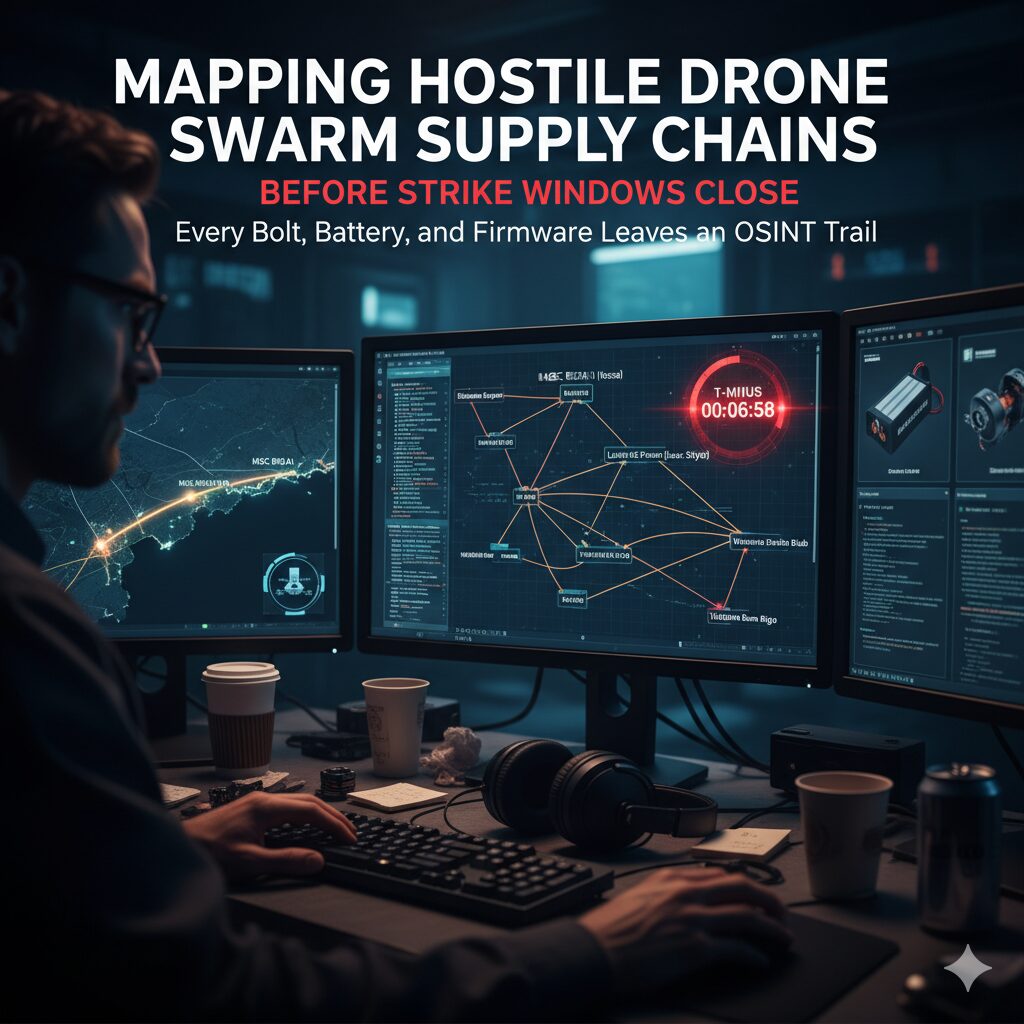After protecting yourself from dating scams and travel fraud, the next frontier is safeguarding what matters most: your family, home, and major investments. While personal verification focuses on immediate risks, family protection requires deeper due diligence and ongoing vigilance.
The stakes are higher when children are involved, major purchases are at risk, or your home security depends on contractor reliability. Fortunately, the same OSINT tools used by law enforcement professionals can provide the peace of mind every family deserves.
Understanding Family-Focused OSINT Tools
Family protection using OSINT tools requires a different approach than personal verification. You’re not just checking for obvious scams but conducting comprehensive background research on people who will have access to your home, children, or significant assets.
This level of verification involves multiple databases, cross-referencing official registrations, and understanding legal compliance requirements. The goal is building trust through transparency while respecting privacy boundaries and legal limitations.
Most importantly, family-focused OSINT emphasizes prevention rather than investigation. By establishing verification routines before problems arise, you create protective barriers that keep threats away from your loved ones.
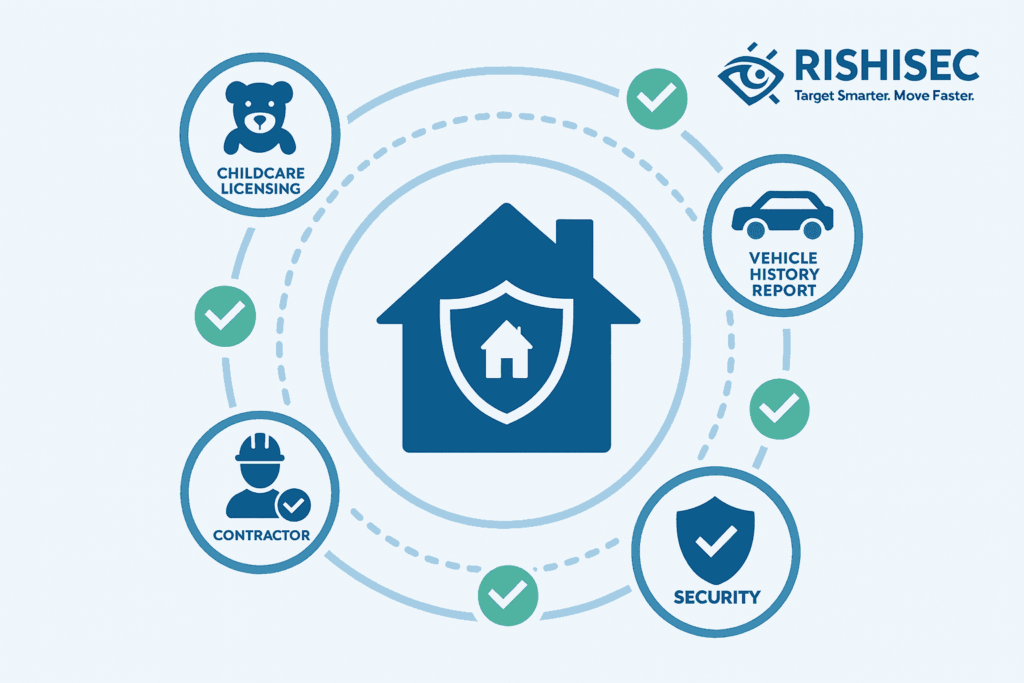
Childcare and Family Service Verification
Entrusting your children to caregivers requires the most thorough verification possible within legal boundaries. However, it’s crucial to understand what you can and cannot legally check when screening childcare providers.
Licensed Childcare Provider Verification
Start with official state licensing databases. Every state maintains public records of licensed childcare facilities, including inspection reports, violations, and complaint histories. Search by provider name, address, or license number to access comprehensive facility records.
Check inspection reports carefully for patterns of violations, response to corrections, and overall compliance trends. Recent violations may indicate systemic problems, while quickly addressed issues suggest responsible management.
Additionally, verify certifications for CPR, first aid, and early childhood education through issuing organizations. Many certifying bodies provide online verification systems to confirm current credentials and training completion dates.
Important Legal Compliance Note
Federal Fair Credit Reporting Act (FCRA) regulations strictly limit DIY background checks for employment purposes. While you can verify licenses and certifications, comprehensive background screening for childcare providers must be conducted through FCRA-compliant services or professional agencies.
Focus your OSINT efforts on publicly available licensing information, facility inspections, and professional certifications rather than attempting personal background investigations that may violate federal regulations.
Kindi for Childcare Verification
Kindi streamlines childcare verification by automatically searching multiple state licensing databases and cross-referencing results with inspection reports and violation histories. The platform’s link analysis helps identify connections between providers and ensures comprehensive verification across all relevant registries.
Vehicle and Major Purchase Due Diligence
Major purchases like vehicles represent significant financial investments that require thorough verification to avoid fraud, safety issues, and costly mistakes.
Vehicle History Investigation
VIN (Vehicle Identification Number) verification forms the foundation of vehicle due diligence. Use the VIN to check theft databases, salvage records, and accident histories through official channels. In the United States, the National Highway Traffic Safety Administration provides free VIN lookup tools.
For UK vehicles, MOT (Ministry of Transport) history provides comprehensive records of annual inspections, mileage verification, and failure patterns. This information helps identify potential mechanical issues and verifies odometer accuracy.
Cross-reference recall databases to ensure any safety-related recalls have been properly addressed. Manufacturers are required to fix safety recalls free of charge, but many vehicles remain unrepaired due to owner negligence.
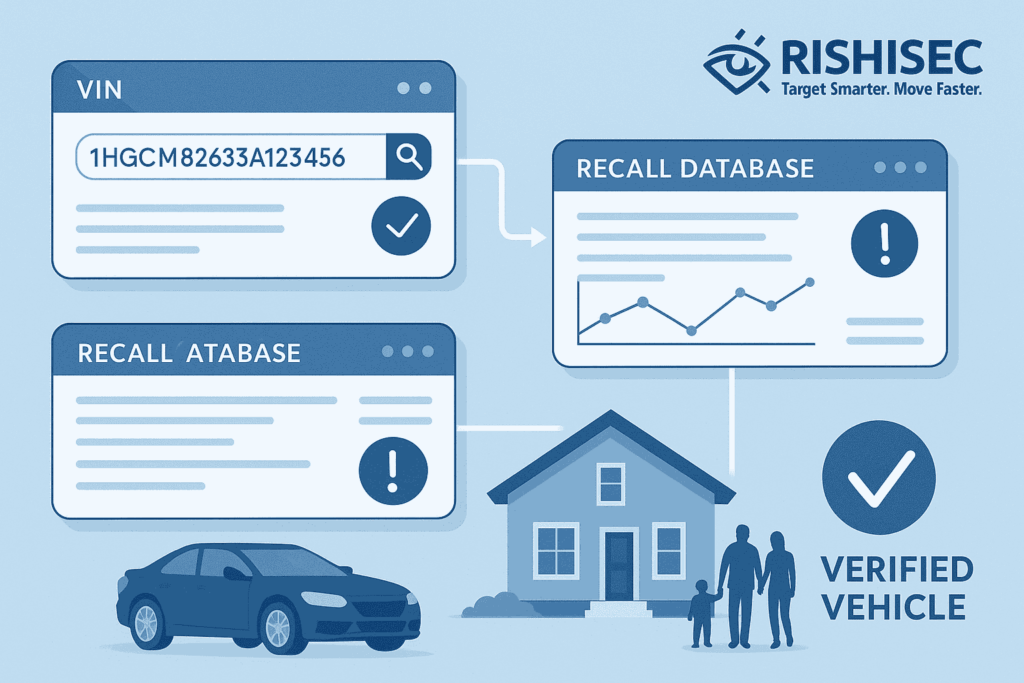
Insurance and Financial Verification
Verify insurance history and claims patterns when possible through legitimate channels. Some insurance databases provide limited public access to total loss records and flood damage histories that may not appear in standard vehicle reports.
For expensive vehicles or equipment, consider verifying financing status through appropriate channels to ensure clear title transfer. Liens and financing complications can create legal problems even for legitimate purchases.
Kindi for Vehicle Verification
Kindi integrates VIN data with recall databases, insurance records, and inspection histories, presenting comprehensive vehicle profiles through visual link analysis. This automation eliminates the need to manually search multiple databases while ensuring no critical information is overlooked.
Small Business and Contractor Due Diligence
Hiring contractors and service providers for your home requires verification that protects both your property and your financial investment. Poor contractor choices can result in substandard work, legal problems, and significant financial losses.
Business Registration and Licensing Verification
Verify business registration through official channels. In Nigeria, check Corporate Affairs Commission (CAC) records. UK businesses should appear in Companies House registrations. EU businesses require VAT number verification through official tax authority databases.
Cross-reference professional licensing through relevant trade boards and regulatory agencies. Electricians, plumbers, contractors, and other skilled trades typically require licensing that can be verified through state or provincial databases.
Check for complaints and disciplinary actions through professional regulatory bodies. Many licensing authorities maintain public records of complaints, disciplinary actions, and license suspensions that provide crucial insight into business practices.
Financial and Insurance Verification
Verify insurance coverage through legitimate channels when possible. Contractors should carry both liability insurance and workers’ compensation coverage to protect homeowners from potential claims and damages.
Research business financial stability through available public records. Long-standing businesses with consistent registration histories typically indicate reliable service, while frequent name changes or recent incorporations may warrant additional scrutiny.
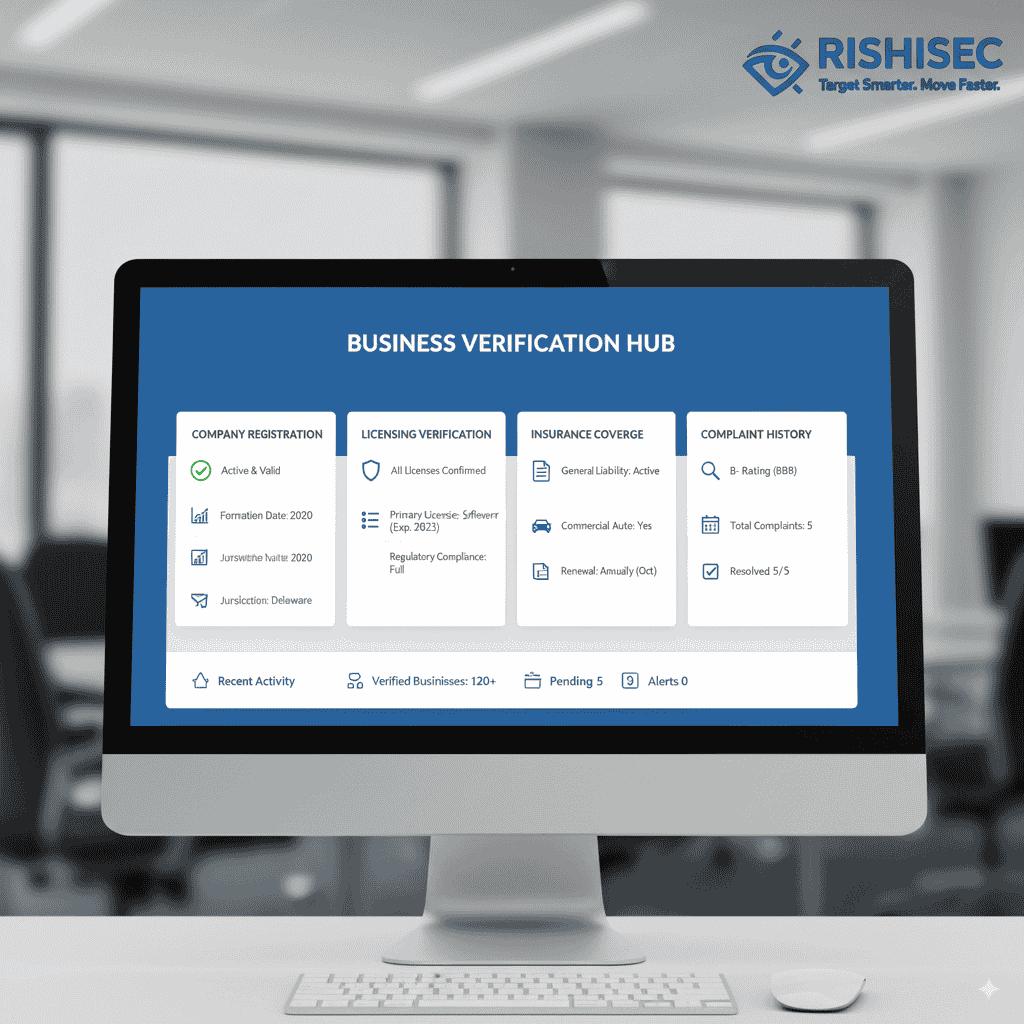
Kindi for Business Verification
Kindi automates business legitimacy verification by searching company registration databases, professional licensing authorities, and sanctions lists simultaneously. The platform’s global registry integration ensures comprehensive verification regardless of business location or complexity.
Furthermore, Kindi’s collaboration features allow family members to share verification results and make informed decisions together about contractor selection and major service providers.
Essential OSINT Tools for Family Protection
Here are the most critical OSINT tools for comprehensive family protection:
- State Licensing Databases: Verify childcare, contractor, and professional service provider credentials
- Business Registration Systems: CAC Nigeria, Companies House UK, state business registries
- Vehicle History Services: VIN lookup, MOT records, recall databases
- Professional Regulatory Bodies: Medical boards, trade councils, licensing authorities
- Insurance Verification Systems: Carrier databases and coverage verification tools
- Court and Legal Records: Public lawsuit and judgment databases when legally accessible
- Consumer Protection Resources: BBB reports, consumer complaint databases, regulatory actions
These tools work most effectively when used together as part of a comprehensive verification strategy. Individual searches provide valuable information, but comprehensive verification requires multiple data sources and cross-referencing.
Building Your Family Protection Protocol
Develop systematic approaches to family protection that become routine safety practices. For childcare decisions, establish comprehensive checklists that include licensing verification, inspection history review, and certification confirmation before making commitments.
For major purchases, particularly vehicles or home improvements, make verification part of your decision-making process. The time invested in thorough due diligence can prevent significant financial losses and safety issues.
Create shared verification protocols that all family members understand and can implement. This ensures consistent protection standards regardless of who’s making decisions about service providers or major purchases.
Stay informed about emerging verification techniques and new databases that become available. Fraud investigation methods continue evolving, and family protection strategies should evolve accordingly.
Advanced Family Safety Considerations
Beyond basic verification, consider ongoing monitoring for critical service providers. Licensing status can change, businesses can face regulatory actions, and previously reliable contractors may encounter problems that affect service quality.
Establish review schedules for long-term service providers. Annual verification reviews help ensure continued compliance and reliability, particularly for critical services like childcare or security systems.
Document your verification processes and results. This creates accountability for service providers while providing reference information for future decisions and recommendations to other families.
Responsible Family Protection Practices
When conducting family protection verification, always respect legal boundaries and privacy rights. Focus on publicly available information and official databases rather than attempting invasive personal investigations.
Understand the difference between legitimate due diligence and harassment or stalking. Family protection verification should enhance safety without violating others’ privacy rights or creating legal liability.
Maintain confidentiality about verification results. Share information only when necessary for family safety decisions or when required by law enforcement during investigations.
Remember that verification provides risk assessment, not absolute guarantees. Use OSINT tools to make informed decisions while maintaining appropriate caution and backup safety measures.
Technology Solutions for Busy Families
Modern families need efficient verification solutions that provide comprehensive protection without consuming excessive time or requiring technical expertise. This is where automated OSINT platforms become particularly valuable.
Platforms like Kindi transform family protection by consolidating multiple verification processes into streamlined workflows. Instead of manually searching dozens of databases, families can access comprehensive verification reports through intuitive interfaces designed for non-technical users.
The collaboration features enable family decision-making by allowing multiple family members to review verification results and contribute to safety discussions. This shared approach to family protection ensures that safety decisions benefit from multiple perspectives and expertise areas.
FAQ
What OSINT tools can I legally use to verify childcare providers?
You can legally verify licensing status, inspection reports, and professional certifications through official state databases. However, comprehensive background checks for employment purposes must comply with FCRA regulations and typically require professional services. Focus on publicly available licensing and regulatory information rather than attempting personal background investigations.
How do I verify if a contractor is legitimate and insured?
Check business registration through official channels (CAC in Nigeria, Companies House in UK, state registries in US), verify professional licensing through relevant trade boards, and request insurance certificates directly from their insurance carrier. Many licensing authorities also maintain public complaint databases that provide valuable insight into business practices.
What should I check before buying a used vehicle?
Verify the VIN through theft databases, check accident and salvage histories, review inspection records (like UK MOT history), and search recall databases to ensure safety issues have been addressed. Cross-reference mileage claims with inspection records to detect odometer fraud.
Can I use OSINT tools to investigate my neighbors or community members?
OSINT tools should be used for legitimate safety and verification purposes, not general surveillance of neighbors or community members. Focus on situations where you have legitimate safety concerns or need to verify someone who will have access to your family, home, or assets. Always respect privacy boundaries and legal limitations.
How often should I re-verify service providers and contractors?
For critical services like childcare, annual verification reviews help ensure continued licensing and compliance. For occasional contractors, verify before each major project. Monitor any service provider who has ongoing access to your home or family for licensing changes, complaints, or regulatory actions that might affect their reliability.
Want to strengthen your OSINT skills and master advanced family protection techniques? Check out our OSINT courses for practical, hands-on training designed for both personal safety and professional applications. Ready to streamline your family verification process? Experience Kindi and discover how AI-powered OSINT automation can provide comprehensive family protection with minimal time investment.

